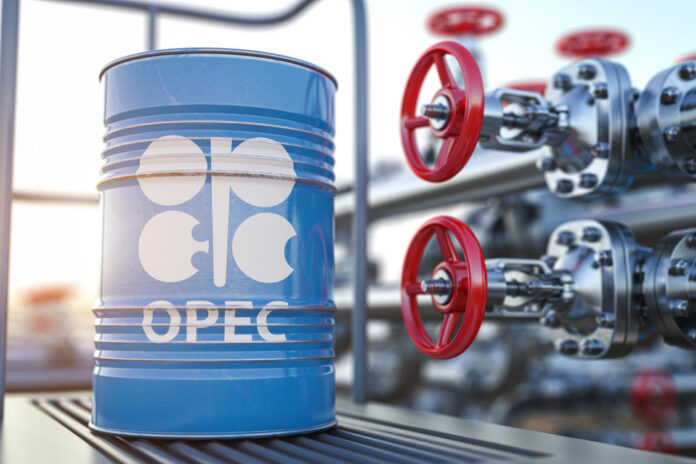LONDON: Oil prices rose on Friday and headed for their biggest weekly advance since late August as investors became less concerned over the potential effect of the omicron COVID-19 variant on economic growth and demand for fuel.
Brent crude rose 1 percent to $75.16 a barrel at about 3:15 p.m. Riyadh time, while WTI, the US benchmark, also gained 1 percent, to $71.68. Both grades are more than 7 percent higher this week, and their first weekly advance in seven weeks.
However, Brent remains more than 7 percent lower since omicron was identified on Nov. 23.
Prices have rallied since the Organization for Petroleum Exporting Countries and its allies, known collectively as OPEC+, agreed on Dec. 2 to push ahead with a planned production increase in January.
OPEC+ took the decision under pressure from the world’s biggest crude consumer, the United States, which has been pushing for lower oil prices, and amid concern the omicron variant could hurt demand as projections showed a supply overshoot from January. A US-led release of oil from strategic stocks was set to increase the surplus.
“The market has taken the decision well,” an OPEC delegate told Reuters. “The variant news made for short-lived negative sentiment, with no clear evidence.”
While a new round of movement restrictions as a result of the omicron variant threatens to impact demand, there has not been a return to the strict limits on travel seen during earlier waves of the pandemic.
At the same time OPEC+, which has been unwinding last year’s record output curbs through monthly increases, has been under-delivering on the pledges due to a lack of capacity to pump more in some of the alliance’s producers.
Prices could head even higher in 2022, according to Christyan Malek and other analysts at JP Morgan, who think OPEC+ will struggle to add 250,000 bpd a month and forecast $125 oil next year in a Nov. 29 note.
Neil Atkinson, a veteran oil analyst and former senior official at the International Energy Agency, said the OPEC+ decision was good for both producers and consumers.
He said the actual OPEC+ increase was likely to be less than 400,000 bpd, so was unlikely to amplify the surplus of oil expected in the first quarter, and it was hard to see a return to the intensity of earlier lockdowns.
“I doubt there will be a major demand shock,” he said. “OPEC+ did the right thing. Thus far, they have added barrels carefully as demand has recovered and prices have recovered to levels that are a fair balance.”
Dec. 10 marks the five-year anniversary of the formation of OPEC+, officially called the Declaration of Cooperation (DoC) between OPEC Member Countries and 10 non-OPEC oil-producing countries.
On that day in 2016, OPEC member countries and Azerbaijan, the Kingdom of Bahrain, Brunei Darussalam, Equatorial Guinea (which later joined OPEC), Kazakhstan, Malaysia, Mexico, the Sultanate of Oman, the Russian Federation, the Republic of Sudan and the Republic of South Sudan gathered in Vienna, Austria, at the OPEC headquarters following an agreement in September of that year to cut 1 million barrels a day from global supplies.
“Looking back to 2016, very few believed that the collaborative efforts would grow and evolve into a major, robust cooperative force to help restore much needed stability in the global oil market,” said OPEC Secretary General, HE Mohammad Sanusi Barkindo. “However, the 23 oil-producing countries have continued to rise to the challenges they have encountered, including instrumenting effective and visionary policies to combat the devastating impact of the COVID-19 pandemic.”
(Reuters contributed to this article.)

